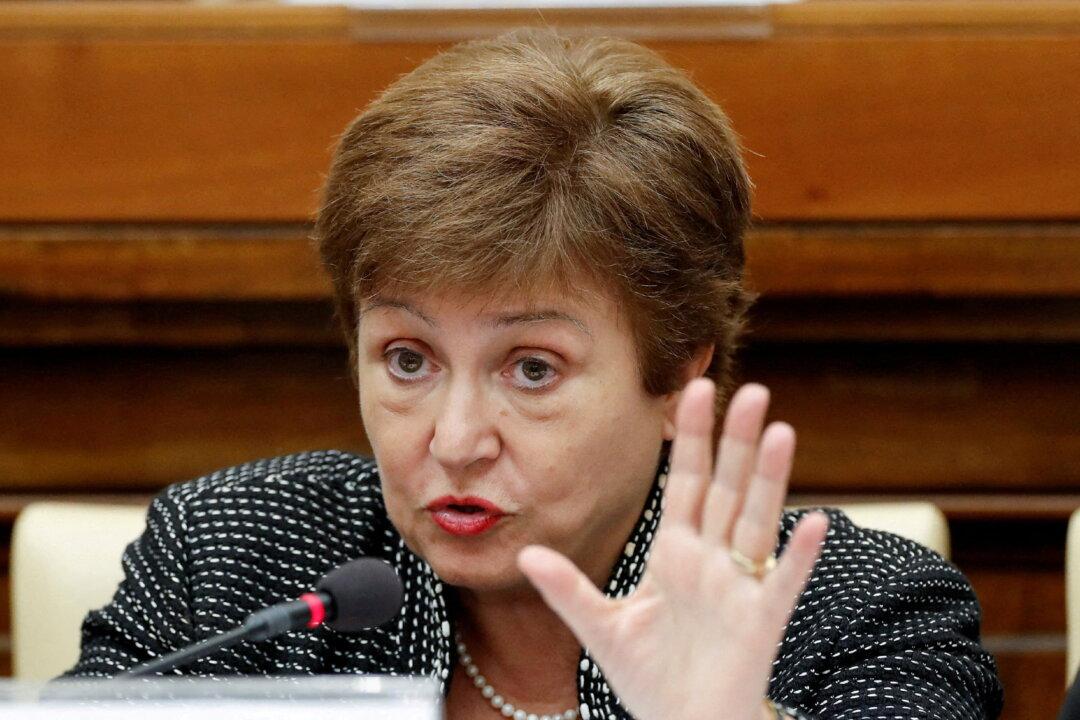The global economy faces “the biggest test since the Second World War” said International Monetary Fund (IMF) chiefs in a post Sunday, as world leaders convene May 23–26 in Davos, Switzerland, for the World Economic Forum (WEF) Annual Meeting 2022.
Russia’s invasion of Ukraine has exacerbated the COVID-19 crisis, destroying lives and economic growth while driving up inflation, said the post, co-authored by managing director of the IMF Kristalina Georgieva, deputy director Gita Gopinath, and strategy director Ceyla Pazarbasioglu.





